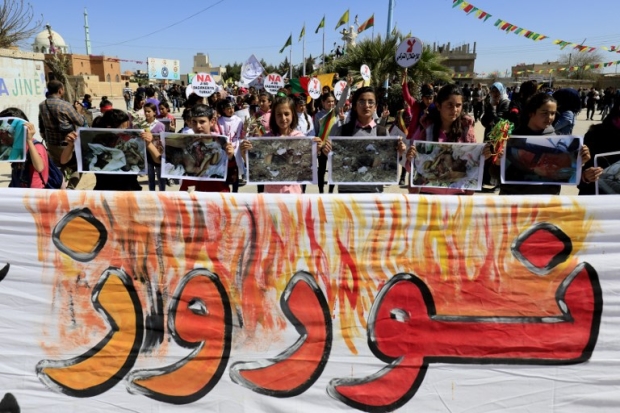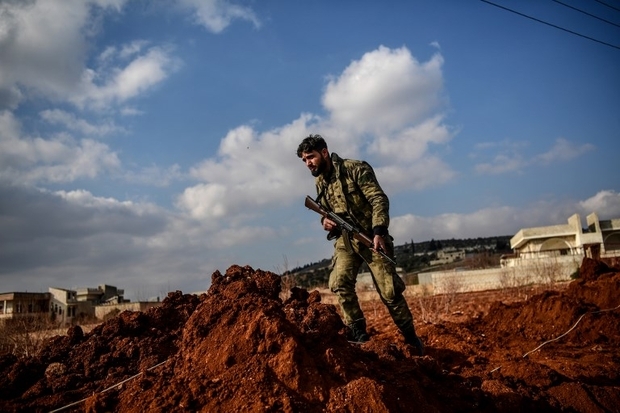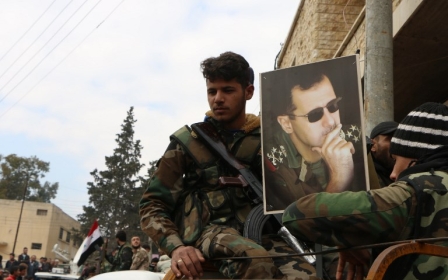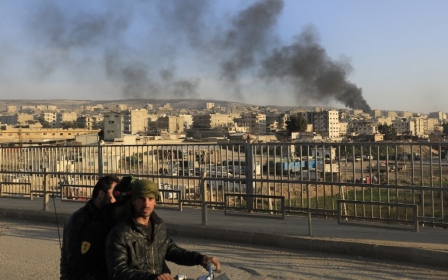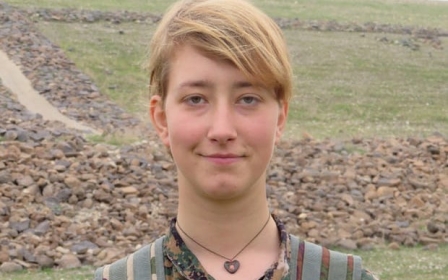ANALYSIS: Hubris over Afrin victory could lead to mistakes
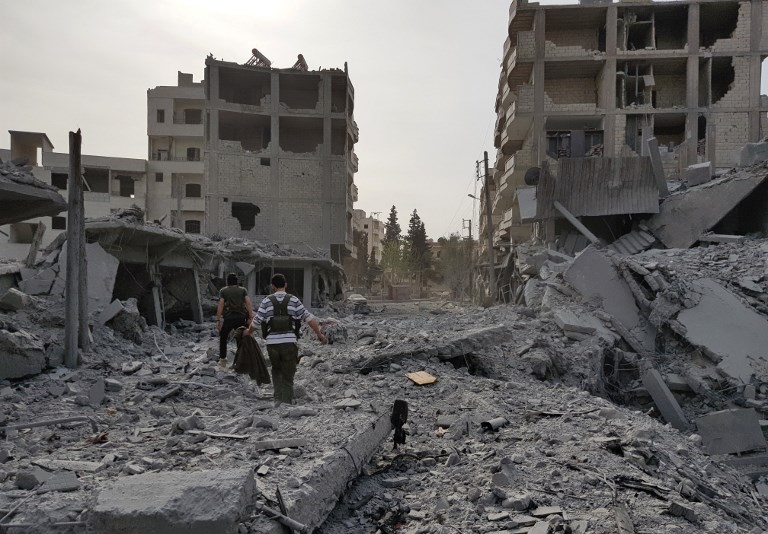
ISTANBUL, Turkey – All-or-nothing positions by elated decision-makers in Ankara could potentially negate gains, and even lead to more conflicts, in the wake of Turkey’s military success in Syria’s Afrin region, analysts have said.
The Turkish military offensive launched in January to clear the Afrin region and its town centre of any Syrian-Kurd PYD/YPG presence proved to be an unrivalled success, not only in military but also in diplomatic terms, as far as Ankara sees it.
Ankara managed to make Moscow and Washington see its current priorities vis-à-vis Syria and also get the all-clear from both to launch its offensive, according to analysts.
They say Turkey has never had a stronger hand in Syria with control now established over Afrin and the possibility of a Kurdish-controlled corridor along the length of its border all but extinguished.
Whether this strong hand is used effectively depends entirely on the mood of decision-makers in Ankara, an academic who wanted anonymity due to those not deemed “patriotic enough” on Afrin being labelled traitors in recent weeks, told Middle East Eye.
“It all depends on the kind of hubris the Afrin success has created in minds in Ankara. At this moment we have some worrying statements and some sober ones. It is hard to tell who will prevail,” the academic said.
Initial comments from Ankara suggest politicians are looking to ride the wave of nationalism and maximise the political gain from the military success in Afrin by promising more offensives in other parts of Syria and even Iraq.
American statements have also been hawkish, particularly on the potential flashpoint of Manbij.
Ahmet Kasim Han, a professor of international relations at Istanbul’s Kadir Has University, told MEE that care was now needed not to squander recent gains.
“There is little doubt that this is one of the best Turkish military victories ever. And the gains from it are available if they are not wasted due to political considerations,” said Han.
Ankara’s implacable position and consequent fallout with the US is because it considers the PYD and its armed militia, the YPG, as extensions of the PKK - an organisation listed as terrorist by Turkey, the United States and the European Union, and against which Turkey has been fighting since 1984.
The US opted to partner with the YPG-dominated Syrian Democratic Forces in its campaign against the Islamic State group in Syria.
Ankara has viewed the formation of a Syrian-Kurdish controlled corridor all along its border with Syria as an existential threat since 2012, when the Bashar al-Assad government handed over control of the Afrin region to the PYD, preferring to focus on other conflict areas in the war-torn country.
Despite feeble objections to Turkey’s Afrin offensive, the US made it clear right from the start that it would not come to the aid of the YPG in Afrin.
According to Han, Turkish military tactics were exemplary and the leaving open of a corridor not just for civilian evacuations but also for the YPG to retreat led to a victory with minimal loss of life.
“The YPG could try to say they withdrew voluntarily to avoid civilian casualties and make themselves look good. But no one will buy that line,” he added.
“They were ready to fight but had to retreat after they got no backing from either the Americans and, more importantly, the Russians who control Afrin.”
The French foreign minister, Jean-Yves Le Drian, called Turkey's incursion unjustified.
“While concerns over border security are legitimate... at the same time ... It must be said that it absolutely does not justify the deep incursion of Turkish troops in the Afrin zone,” he said.
“The situation is critical and serious,” he said, adding that Paris feared the Turkish operation was also weakening the action against Islamic State militants.
Han, who was among the very first to forecast Turkey’s military offensive into Afrin, said the possibility of Ankara and Washington agreeing a deal on Manbij was a viable option.
Han said he could see the Americans agreeing to Turkey’s terms that all YPG forces be removed from Manbij on the proviso that Ankara fully cooperates in other areas and specifically ends any plans to hit the PYD/YPG east of the Euphrates River.
“At this point it is possible as a strategist to list all the possibilities, but very difficult to provide any mathematical probabilities on how the situation develops post-Afrin,” said Han.
“But what can be said with certainty is that anyone adopting maximalist positions will set themselves up to lose. Domestic considerations will play a major role.”
Mustafa Guvenc, an expert at the Turkey-based Centre of Strategic Research on the Arab World, told MEE that Turkey’s military operations would continue after its Afrin victory and that all other players in Syria could no longer ignore Ankara.
Turkey has no eye on Syria’s territorial integrity. Hosting 3.5m refugees for so many years has been a huge burden
- Mustafa Guvenc, expert at Centre of Strategic Research on the Arab World
“Turkey’s pre-emptive policy at striking threats where it sees them has proved successful. Turkey didn’t ask for anyone’s permission to carry out the Afrin operation,” he said.
“It carried out the operation alone because it was betrayed by Nato and the anti-terror coalition,” said Guvenc. “From here, Turkey will launch operations in Manbij, then Raqqa, and also in Iraq.”
According to Guvenc, Ankara’s priority in Syria is to create safe zones where the 3.5m refugees it hosts can be repatriated.
“Turkey has no eye on Syria’s territorial integrity. Hosting 3.5m refugees for so many years has been a huge burden. Ankara is now creating safe zones where these Syrian people can return to.”
No war fatigue
Detailed official instructions to the Turkish media on how to report the Afrin offensive and to only report situations that reflect positively on Ankara’s decision, however, adds to the risk of adopting maximalist positions, said the academic seeking anonymity.
“All this glossy selective coverage means the public have no idea of the cruelties that war brings with it and there is no war fatigue among the public,” the academic said.
“Politicians also find it easier to clamour for more war as a result because nationalist fervour is very high and the fight against terror is a vote winner.”
Another factor to determine Ankara’s post-Afrin situation will be which Islamist camp within the government carries the day, according to the academic.
The idealist camp sees developments in Syria as part of a larger war between Turkey and the US.
Inspired by the Iranian revolution in 1979 which they consider to be the first challenge to the US in the region, they would like Turkey to take on the US in Syria.
The pragmatist camp, although it might harbour similar sentiments in private, is not keen on viewing developments in such simple and stark terms.
“Chances are the pragmatist side will prevail because [Turkish President Recep Tayyip] Erdogan has always been a pragmatist. But current public sentiment favours the idealist line and that could push him in that direction as well, especially with crucial presidential elections looming,” the academic said.
Turkey needs to ensure that it moves smartly with a new hawkish chief installed in the US State Department, said Han.
“Turkey’s dalliance with Russia now has some in American decision-making circles voicing concern about losing a strategic ally. In those terms it was a risky but ultimately successful move. There could be some willingness to keep Turkey onside but a lot will also depend on how flexible Ankara decides to be in Syria."
New MEE newsletter: Jerusalem Dispatch
Sign up to get the latest insights and analysis on Israel-Palestine, alongside Turkey Unpacked and other MEE newsletters
Middle East Eye delivers independent and unrivalled coverage and analysis of the Middle East, North Africa and beyond. To learn more about republishing this content and the associated fees, please fill out this form. More about MEE can be found here.


